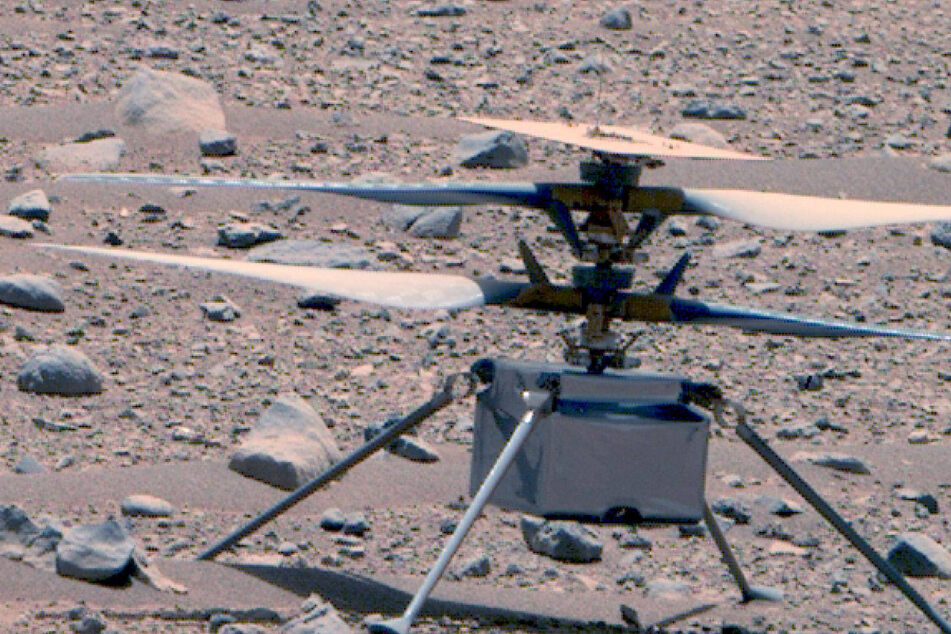Mars helicopter Ingenuity suffers paralyzing damage
Pasadena, California - NASA's Mars helicopter Ingenuity can no longer fly, the US space agency announced on Thursday

Images sent to Earth this week show that one or more of the mini helicopter's rotor blades were damaged during a landing. Although Ingenuity is still upright and can communicate with the control center on Earth, the helicopter can't get airborne.
This means that the helicopter's mission, which was originally only scheduled to last 30 days, is now over after around three years on Mars, NASA said in a statement.
"The historic journey of Ingenuity, the first aircraft on another planet, has come to end," said NASA Administrator Bill Nelson. "That remarkable helicopter flew higher and farther than we ever imagined and helped NASA do what we do best – make the impossible, possible," he said.
"Through missions like Ingenuity, NASA is paving the way for future flight in our solar system and smarter, safer human exploration to Mars and beyond," he said.
Ingenuity landed on Mars in February 2021 with the Perseverance rover, which has since been searching for traces of past microbial life on the planet and exploring its climate and geology.
Shortly after landing, the helicopter, which is powered by lithium-ion batteries and weighs around four pounds, became the first aircraft to complete a flight on another planet. The helicopter completed a total of 72 flights with a total flight time of more than two hours.
On its very first flight in April 2021, the mini helicopter took off from the surface of Mars, ascended to a height of around 10 feet, and hovered for around 30 seconds before landing again. The flight lasted a total of 39.1 seconds.
Ingenuity first landed on Mars in February 2021
The NASA scientists then continued to design new flight routes for Ingenuity.
The helicopter had to withstand extreme conditions on Mars: At night, it is as cold as minus 130 degrees Fahrenheit, which can easily be a death sentence for batteries and electronics. Due to the thin atmosphere, which is roughly only 1% as dense as that of Earth, the rotors of Ingenuity had to accelerate to 2537 revolutions per minute – many times more than helicopters on Earth.
Ingenuity drew the energy for this effort from its solar-powered battery. Even if Ingenuity can no longer fly, the helicopter will influence the future of space travel, said Ingenuity's project manager Teddy Tzanetos.
"History's first Mars helicopter will leave behind an indelible mark on the future of space exploration and will inspire fleets of aircraft on Mars – and other worlds – for decades to come," Zanetos said.
Cover photo: IMAGO / ZUMA Wire